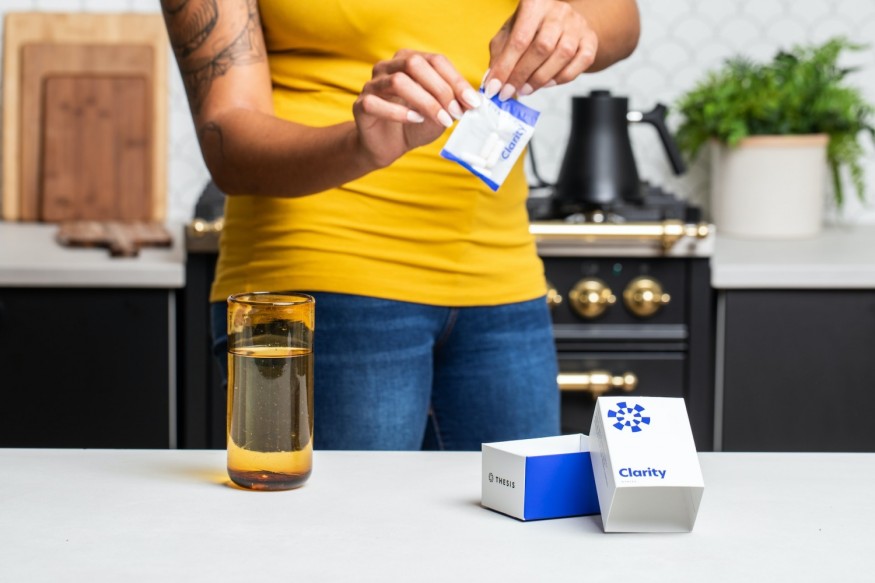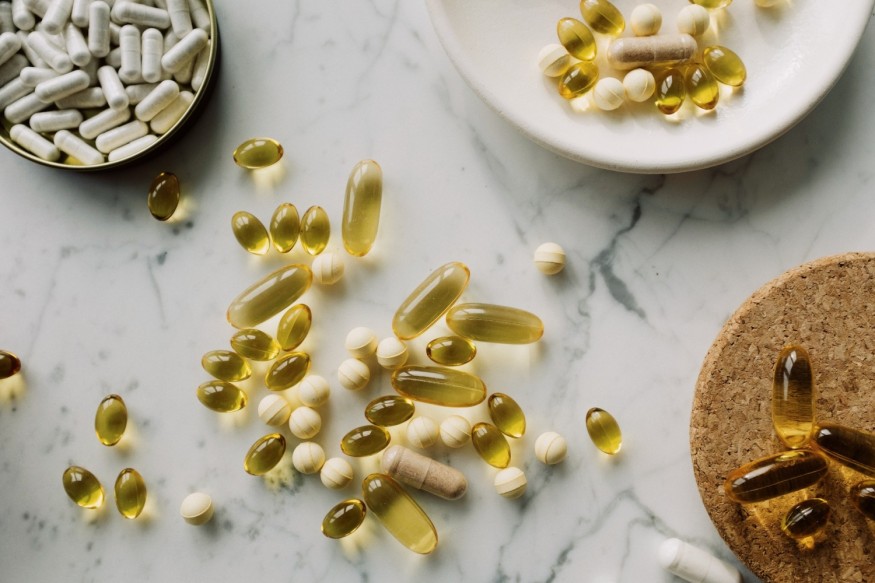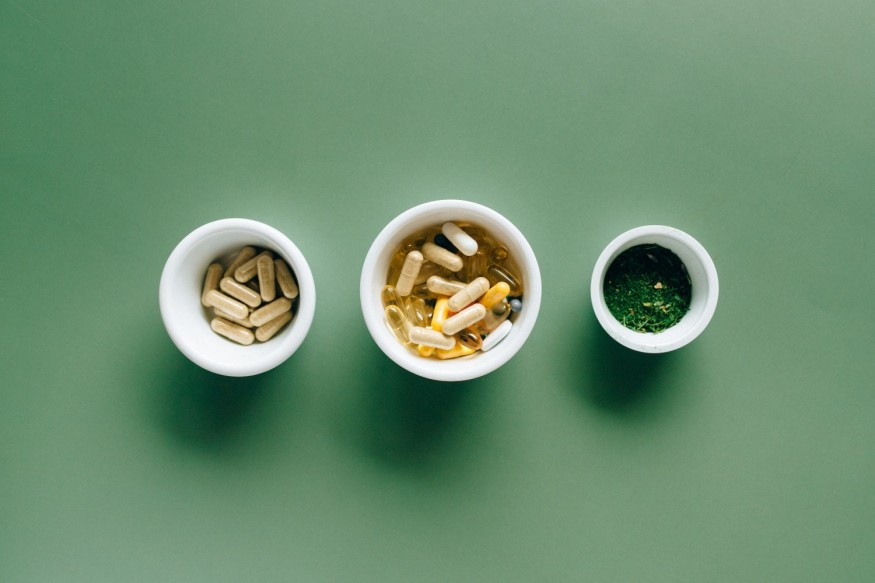
Do you know the key to unlocking better digestive health, a stronger immune system, and an overall healthier you? It's not another probiotic shot or yogurt cup. The answer lies in prebiotics - a special form of dietary fiber that serves as fertilizer for the good bacteria in your gut microbiome.
Chances are you've heard about the health perks of probiotics.
The benefits of prebiotics, however, are less known. But these functional fibers play an equally important role in supporting your microbiome and overall wellbeing. While probiotics are the live organisms, prebiotics act as "food" to help probiotics thrive.
Eating a diet rich in prebiotics may be the missing link to optimizing your gut health and gaining myriad benefits. Who wouldn't want a happy belly and stronger immunity? Beyond digestive perks, prebiotics are linked to improved heart health, stabilized blood sugar levels, and lower inflammation.
Read on to learn what prebiotics are, how they work, why you need them, and how to add more prebiotic-rich foods into your diet today. It's time to unlock the power of prebiotics for next-level wellness!
TLDR; The Important Role of Prebiotics in Your Diet
Prebiotics are fibers that feed and nourish probiotics, optimizing gut health
They promote the growth of good bacteria like Bifidobacterium and Lactobacillus
Top prebiotic foods: onions, garlic, bananas, oats, beans, lentils
Prebiotics improve digestion, immunity, inflammation, mineral absorption
Aim for 5-10 g prebiotic fiber daily from foods like fruits, vegetables, grains
Start slowly and drink water to avoid gas/bloating
Prebiotic supplements provide concentrated prebiotic fibers
Work closely with your doctor if taking prebiotic supplements
Prebiotics create the ideal environment for probiotics to thrive
They increase microbiome diversity and support gut barrier function
Eat a variety of prebiotic foods to nourish unique probiotic strains
Feed your gut bugs prebiotics for whole-body wellness!
What are Prebiotics and How Do They Work?
Prebiotics are a special form of dietary fiber that feed the good bacteria in your gut microbiome. The official definition describes prebiotics as "a substrate that is selectively utilized by host microorganisms conferring a health benefit." In simpler terms, prebiotic fibers act as fertilizer or food for probiotics, helping them flourish.
The most common prebiotic fibers are non-digestible carbohydrates like inulin, fructooligosaccharides (FOS), galactooligosaccharides (GOS), and resistant starches. These fibers resist digestion in the stomach and small intestine. When they reach the colon, beneficial bacteria like Bifidobacterium and Lactobacillus devour them.
Consuming prebiotic foods provides these helpful bacteria with nutrients they need to grow and multiply. A diverse, well-fed microbiome is critical for gut health. Eating plenty of prebiotics enhances the beneficial effects of probiotics and promotes optimal function of your GI tract. Prebiotics also increase the production of short-chain fatty acids which offer health perks. In short, prebiotics work as fertilizer to create the ideal environment for probiotics to thrive.
Key Health Benefits of Prebiotics

Research shows prebiotic consumption offers a multitude of health benefits:
Improved Digestive Health: Prebiotics nourish beneficial gut bacteria and support the diversity of microbiome species. This improves resistance to intestinal infections, reduces bloating and gas, increases regularity, and strengthens the gut barrier. More efficient digestion and better gut health follows.
Enhanced Immune Function: 70% of the body's immune system resides in the GI tract. By boosting populations of good bacteria, prebiotics support healthy immune cell growth and optimize the body's defenses.
Lower Inflammation: Prebiotics have been shown to reduce inflammatory markers like C-reactive protein (CRP) and interleukin-6 (IL-6). Less inflammation equals lower risk for many chronic diseases.
Increased Mineral Absorption: Specific prebiotics support the uptake of important minerals like calcium and magnesium from foods. This strengthens bones and prevents deficiencies.
Weight Management: Prebiotics enhance feelings of fullness after eating, increase fat burning, and alter expression of hunger-regulating hormones. This aids in weight loss and maintenance.
The prebiotic-probiotic team is essential for overall wellness. Add more prebiotic foods to your diet and reap the digestive, immune-boosting, and inflammation-fighting rewards.
Best Food Sources of Prebiotics
Many delicious foods contain beneficial prebiotic fibers. Some top dietary sources include:
Fruits: Apples, bananas, nectarines, persimmons, tangerines, and watermelon offer the prebiotic fiber pectin. Berries like strawberries and blueberries also provide prebiotic benefits.
Vegetables: Onions, garlic, leeks, asparagus, Jerusalem artichokes, greens, and seaweed are prebiotic-rich. The inulin fiber found in these foods is particularly helpful for gut health.
Grains: Whole grains like oats, barley, brown rice, and wheat bran give you a healthy dose of beta glucan and resistant starches. Look for 100% whole grain breads, cereals, and pasta.
Legumes: Lentils, chickpeas, white beans, peas, and soybeans are packed with oligosaccharides, a prebiotic fiber that boosts immunity. Eat them on their own or add them to soups and salads.
beta glucan is one of the most researched prebiotic fibers. Found in oats, barley, mushrooms and seaweed, studies show beta glucan improves cholesterol, immunity, heart health, and insulin response. It also enhances probiotic growth.
Make sure to consume a mix of prebiotic foods to nourish diverse strains of beneficial bacteria. Each source offers unique resistant starches, oligosaccharides, inulin, and pectin to feed different microbes.
How Much Should You Eat?

Most experts recommend getting 5-10 grams of prebiotic fiber per day for digestive and overall health benefits. The adequate intake is higher for children, teens, and pregnant women. It's easy to meet these recommendations by eating prebiotic-rich foods.
Aim to increase your daily prebiotic fiber intake gradually over a few weeks. This allows the microbiome time to adjust and avoids excessive gas or bloating. Slowly work up to the recommended daily amounts.
Some easy ways to add more prebiotics to your diet include:
Start your day with oatmeal, granola with yogurt or a smoothie with bananas or berries
Snack on fruits like apples, pears, plums or an orange
Add onions, garlic, asparagus, artichokes or leeks to meals
Enjoy prebiotic salads with chickpeas, beans or lentils
Switch to whole grain breads, pasta, rice and baked goods
Sprinkle wheat bran or psyllium husk over cereals or yogurt
Try prebiotic foods like Jerusalem artichokes, jicama, radishes
Drink prebiotic coffee, tea or supplement drinks
Consuming too many prebiotic fibers too quickly can cause unpleasant gas and bloating. Build up slowly and drink plenty of water. Talk to your doctor before taking prebiotic supplements. Get your prebiotics from food first for the best gut and health benefits.
Prebiotic Supplements
Prebiotic supplements provide concentrated doses of prebiotic fibers. Common types include:
Inulin from chicory root - promotes calcium absorption and bowel regularity
Psyllium husk - improves cholesterol and bowel movements
Fructooligosaccharides (FOS) - supports immunity and mineral absorption
Galactooligosaccharides (GOS) - facilitates growth of Bifidobacteria
Resistant starch - boosts populations of healthy gut bacteria
Acacia gum - encourages growth of Bifidobacterium
beta glucan from oats, mushrooms, etc - lowers cholesterol and blood sugar
Benefits of prebiotic supplements mirror a high-fiber diet - improved regularity, cholesterol, and blood sugar levels. They also help increase probiotic bacteria strains. Start with small doses and increase slowly. Too much too fast may trigger gassiness or diarrhea.
Those with irritable bowel syndrome (IBS) should introduce prebiotics cautiously. Some compounds like inulin may worsen symptoms initially. Work closely with your doctor on dosage and find what works for your gut.
The FDA does not regulate prebiotic supplements. Purchase from reputable brands and follow package directions. While supplements offer concentrated prebiotic nutrition, getting these fibers from whole foods is ideal.
Prebiotics and Your Microbiome

Your gut microbiome is comprised of trillions of beneficial bacteria that play a vital role in overall health and disease prevention. Prebiotics help optimize the diversity and function of this microbial community. Here's how:
A flourishing microbiome with wide variety of microbe species is important for GI health, immunity, and more. Different prebiotics selectively stimulate growth of unique probiotic strains like Bifidobacterium and Lactobacillus. Consuming diverse prebiotic fiber sources thus increases microbial richness.
Prebiotics provide "food" probiotic bacteria need to thrive. By stimulating their growth and activity, prebiotics support the many functions good gut bugs provide - vitamin production, digestion, pathogen inhibition, gut barrier integrity, and immune modulation.
Though probiotic supplements provide friendly bacteria, they cannot permanently colonize the GI tract. Prebiotics create the ideal environment in your gut for probiotics to successfully establish. This synergistic relationship between prebiotics and probiotics is key for optimal microbiome and body-wide health.
Feed your microbiome the prebiotics it craves. A diet rich in fruits, vegetables, whole grains, legumes, nuts, seeds, and fermented foods will provide diverse prebiotic fibers to nurture probiotic growth and diversity for whole-body wellness.
Key Takeaways: The Important Role of Prebiotics in Your Diet
Hopefully this article has shown the power of prebiotics for transforming your health. While probiotics have hogged the spotlight, prebiotics are the unsung heroes that make probiotics work their magic. These special fibers selectively feed our good gut bugs, enhancing the benefits of probiotics exponentially.
A diet rich in varied fruits, vegetables, grains and legumes provides the diverse prebiotics your unique microbiome thrives on. Gradually ramp up your prebiotic fiber intake and nourish your inner ecosystem. Enjoy better digestion, boosted immunity, eased inflammation and balanced weight.
Don't wait to unlock the health secrets of prebiotics. Start fertilizing your gut garden with prebiotic-rich foods today. Say goodbye to bloating and sluggishness and hello to improved regularity, energy and wellbeing. Feed your microbiome the prebiotics it craves and reap whole-body rewards for life!












